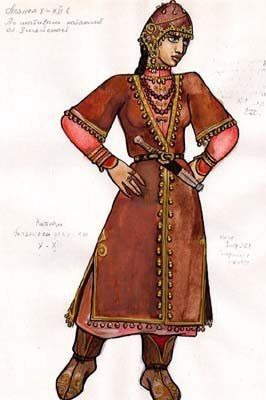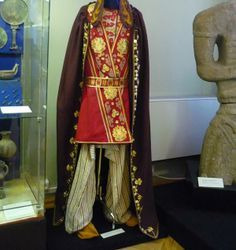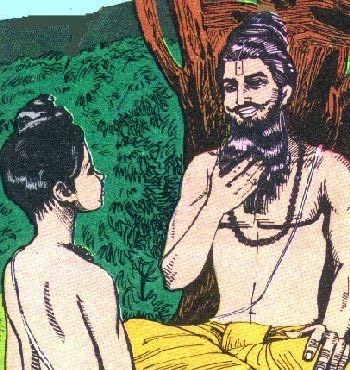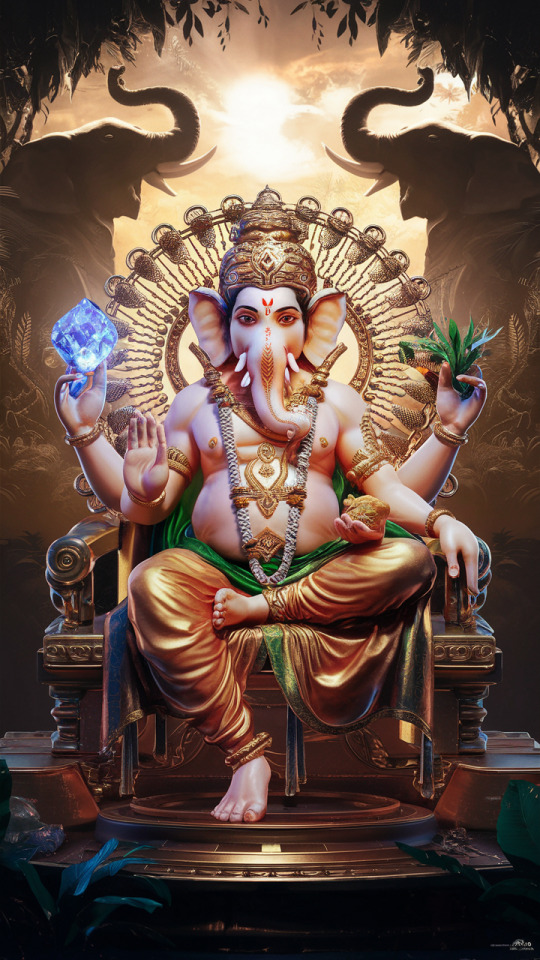#Books on Hindu Religion
Explore tagged Tumblr posts
Text

Amidst the seekers and practitioners of this age-old science, one identify stands out as a beacon of understanding and practise - Vishal Krishna Vedic Astrology. With a recognition for offering the first-class vedic astrology in UK services, Vishal Krishna is famend for his correct predictions and compassionate counsel. They are acknowledged as the first-rate vedic astrologer in London who gives the fantastic astro vedic astrology services.
#Best Astrologer in UK#Best Horoscope Reader in London#astro vedic astrology#Best Vedic astrologer in london#astrology courses UK#Books on Hindu Religion#astrology in UK#Horoscope reading in london UK
0 notes
Text
ladies fellows and gentletheys i present to you the ONLY section of non-christian religious books at my barns and noble

compared to the literal SEVERAL ISLES of exclusively christian theology books and bibles

i shouldve took more pics but the shelf in the fist pic is also full of christian exclusive theology, literally just that tiny corner for every other religion
and it's in the very back of the store at that 😭
and #2 you CAN'T FUCKING PUT HOLOCAUST DOCUMENTS IN THE RELIGIOUS TEXT SECTION??? THAT IS FUCKING HISTORY PUT IT IN THE HISTORY SECTION???????
christian god forbid someone is muslim jewish buddhist hindu or pagan
#why#barns and noble#book store#bookstores#are fucking stupid#religion#christian#christianity#jewish#judaism#islam#muslim#buddhist#buddhism#hinduism#hindu#ideology#tw religious themes#religious#spiritual#anti antisemitism#anti islamophobia#pagan#paganism#lgbt
25 notes
·
View notes
Text
if you call current religious and spiritual practices "mythology" only when they're from a culture you don't understand, you're being bigoted
if you're well aware of modern Christianity and are calling Jesus "a mythological figure", carry on
#religion#i guess#for real I'm sick of random Christians I know especially calling stuff 'mythology' when it's just like... a type of current day paganism#I've seen people call Hindu Gods and Goddesses mythological whilst being infuriated if the Bible is called a book of myths#like if you don't want your own religion referred to that way don't do it to others????
9 notes
·
View notes
Text

"He should also teach the daughter of the girl's nurse all the sixty-four means of pleasure practised by men, and under this pretext should also inform her of his great skill in the art of sexual enjoyment. All this time he should wear a fine dress, and make as good an appearance as possible, for young women love men who live with them, and who are handsome, good looking and well dressed. As for the saying that though women may fall in love, they still make no effort themselves to gain over the man of their affections, that is only a matter of idle talk."
-Vatsyayana, The Kama Sutra.
#books#history#literature#religion#theology#mysticism#esotericism#religious#hinduism#hindu#hindu theology#Kama sutra#dharma#marriage#middle ages#medieval#medieval literature#love#valentines day#romance#romantic#religious quotes#religious aesthetic#religious art#art#aesthetic#aesthetics#ldr#Lizzie grant#lana Del Rey
20 notes
·
View notes
Text
Tapati, who is she, and why is she significant?
Well, first, she is a river goddess, but daughter of the sun god, Surya. However, her name means the hot one, the burning one. Interestingly enough, her name is tied to the river she's said to rule over - HOWEVER, language time.
Agni, a vedic fire god, has a scythian counterpart similar in name (and the scythian's are the older culture that broke off to form the vedic, indo iranian/iranian, and levant people as well as others - mixing, breeding, invading).
Back to Tapati.
Her name is cognate with the Scythian supreme fire goddess, Tabiti. Very interesting.
Tabiti is the supreme goddess of all things in the Scythian culture, primordial, the first flame, and much like Ianna (from Summerian mythology I talked about later) went on to inspire entire god/goddess roles, and had mantles inverted as interestingly enough, there's evidence some first/supreme deities were feminine, later flipped to male as cultures evolved - their places/roles attributes assigned to male gods and their places changed - made wives, daughters, so on a similar sort of flipping happens out of the Scythian culture/ proto Indo Europeans (that I've talked about) where the root word for a divine (doesn't mean good just divinely powered) being evolved along languages the ahura, asura, and asir (Norse) come from an older proto Indo-European/Scythian word.
In the Vedic stories, the daevas are good, the asura evil. In the Avestan and Iranian texts...the ahura/asura are good, and the daevas are evil.
We know the Norse asir and vanir warred also very interesting. And interesting how gods/goddesses are changed, subsumed, adopted and more, no? Tabiti was never represented in/by art, btw. Her representation was always an actual fireplace -- a flame. That's what you used.
There's historical written evidence in places of Agni's animal form being both referred to as a bull, AND a cow in places - different genders. And his flame being referred to as female in places.
In the Hindu bronze age, Agni had way more of a prominent role as fire did before later dwindling...as fire does (ooooo symbolic - okay that's just cuz of time and shifting priorities), but there are more similarities of these things in Baltic cultures -- but oh why?
(Why am I hopping around? Cuz gods/goddesses, archetypes, beats, stories all do too - all connected you muppets).
Well, did you know the closest cognate to Sanskrit is Lithuanian? It's kept so much of its proto Indo European roots.
Wait, a South Asian language and Baltic European language are cognates? YUH. WEIRD.
Almost like they both derived out of an older culture, language, their practices, beliefs and more.
And most of human history is just migrating, fucking, invading, and settling in new places and staying long enough until your features continue to change due to bow chicka wow wowing and environment.
Funny how that works.
Here's some Scythian clothing (oh btw, women were warriors/could be too - congrats you learned that).


Does this style look familiar? Yeah, you can see the evolution/adaptation from this to later styles (bearing similarities) in Iran, India, Mongolia, the Baltics.
Cuz....y'know, that's where the proto Indo Europeans went about their biz and got jiggy with it and settled. Wow-wow-wee-wah! Okay now I'm done. Circular ish convo to get there but started with a fire goddess, it's relevant, but it all comes back to this.
Btw, this is also an important lesson for fantasy authors.
Because of all these connections and how old a bad ass fire goddess is, many of the oldest cultures are regarded as fire worshippers (like the Zoroastrians) did you know some keep an eternal burning flame? -- one is in Udvada Gujarat in India.
This flame has been said to have been kept burning for 1,500 years.
FIFTEEN HUNDRED.
And again, while most of the surviving Indo Iranic sun gods are male, there is evidence the ORIGINAL sun deity (including in/from the German, Baltic, and Slavic religions) was FEMALE.
#Tapati#sun god#sun goddess#Scythian culture#first gods were female#womens history#female history#proto indo european#indo european#Indian#Hindu#Baltic history#European history#deity worship#asian mythology#myths and legends#mythology#folklore#religions#religion changes things#ancient world#ancient history#ancient culture#did you know#fun fact#long thread#fantasy writers#fantasy authors#fantasy books#an important lesson
8 notes
·
View notes
Text
my best friend (who is muslim) feeling so uncomfortable to return to bombay rn……..
#she has had to lie on so many occasions to strangers on the internet & irl about her religion cause it’s unsafe#all the videos im seeing across india are so appalling#every person that has voted this bigot into power#im wishing y’all the absolute worst#she doesn’t even wanna book a cab to her apartment cause she’s slightly afraid#the overt hindu nationalism that im seeing rn is unbelievable
5 notes
·
View notes
Photo

(via Why I Am a Hindu by Shashi Tharoor)
In Why I Am a Hindu by Shashi Tharoor, the author sort of answers the question in the title in the first chapter itself. In other words, if you are looking for a brief answer to the question ‘Why I Am a Hindu’ posed in the title, you only need to read this section of the book. The remainder of the book offers a comprehensive commentary on Hinduism, which may also be considered an elaboration of his abovementioned answer in the initial chapter. His answer could be summarized in the below words which appear in a later part of the book. “I too, as a Hindu, can say, when people tell me ‘Garv se kaho ki tum Hindu ho’, that I am proud to be a Hindu, but in what is it that we are to take pride? I take pride in the openness, the diversity, the range, the lofty metaphysical aspirations of the Vedanta; of the various ways in which Hinduism is practised, eclectically, and of its extraordinary acceptance of differences. Unfortunately, as I have noted, the votaries of Hindutva seem to take pride in Hinduism the way in which one might support a football team as a badge of identity, rather than as a set of values, principles and beliefs, and so Hinduism becomes reduced in their retelling to little more than a label on a T-shirt, a badge of allegiance rather than a way of relating to the cosmos.” This passage elucidates what Hinduism signifies to him, in contrast to the interpretations of many others who claim affiliation with it. There are different sections in the book divided into multipe chapters that delve into various facets of Hinduism, such as its origin, history, different schools of thought, the Hindu culture and its diversity across the states of India as manifested in its rituals, forms of worship, deities, festivals, customs, and lifestyles. The book seeks to find clarity of... (Read full text on booksperience.org)
#books#reading#booksperience#andrew hoffland#audiobook#bharat#deen dayal upadhyay#golwalkar#hindu#hindu nationalism#hinduism#hindutva#india#indian#indian literature#non-fiction#religion#s radhakrishnan#savarkar#shashi tharoor#spirituality#vivekananda#why i am a hindu
3 notes
·
View notes
Text

#Who is supreme God according to the holy books of hindu religion?? To Find out#Download the book हिन्दूसाहेबान_नहीं_समझे गीता वेद पुराणS
2 notes
·
View notes
Text
Shveta Thakrar (Star Daughter, The Dream Runners), Kritika H. Rao (The Surviving Sky), Roshani Chokshi (Aru Shah, The Star Touched Queen), and Ram V (The Many Deaths of Laila Starr) are helping to create a new genre. They use elements of their Hindu backgrounds to write fantasy books primarily aimed at a Western marketplace. I talked with them about the challenge of drawing on a diverse religion of beliefs and gods that many Western readers and publishers might be unfamiliar with. Our panel discussion also turned out to be an opportunity for the authors to bond over their favorite deities, the Hindu comics they grew up reading, and the questions they’ve faced about who gets to tell their stories.
#Creating Hindu Fantasy Worlds#imaginary worlds#podcast#podcasts#authors#books#mythology#folklore#religion#India
2 notes
·
View notes
Text
https://astrologycoursesorvedic.blogspot.com/2023/08/vishal-krishna-vedic-astrology.html
Amidst the seekers and practitioners of this age-old science, one identify stands out as a beacon of understanding and practise - Vishal Krishna Vedic Astrology. With a recognition for offering the first-class vedic astrology in UK services, Vishal Krishna is famend for his correct predictions and compassionate counsel. They are acknowledged as the first-rate vedic astrologer in London who gives the fantastic astro vedic astrology services.
#best vedic astrologer in UK#astrology courses UK#Books on Hindu Religion#astrology in UK#Horoscope reading in london UK#Best Astrologer in UK#Best Horoscope Reader in London#astro vedic astrology
0 notes
Text

#Indian literature#hindi#hindu mythology#religion#temples#india#hinduism#artwork#sculpture#architecture#ya books
2 notes
·
View notes
Text
The Legend of Meneka by Kritika H. Rao
Pages: 512 Publisher: Harper Voyager Released: 16th of January 2025 In this sweeping crossover of romantic fantasy and Hindu mythology, acclaimed author Kritika H. Rao reimagines the famous tale of a celestial dancer tasked with seducing a human sage, but when she finds herself falling in love with her mark, she will be forced to choose between loyalty to her home and being true to…

View On WordPress
0 notes
Text

“When Svetaketu was twelve years old, he was sent to a teacher with whom he studied until he was twenty-four. After learning all the Vedas, he returned home full of conceit in the belief that he was consummately well-educated, and very censorious.
His father said to him, "Svetaketu, my child, you are so full of your learning and so censorious, have you asked for that knowledge by which we hear the unhearable, by which we perceive what cannot be perceived and know what cannot be known?" "What is that knowledge, sir?" asked Svetaketu.
His father replied, "As by knowing one lump of clay all that is made of clay is known - so, my child, is that knowledge, knowing which we know all."
"But surely these venerable teachers of mine are ignorant of this knowledge; for if they possessed it they would have imparted it to me. Do you, sir, therefore, give me that knowledge?"
"So be it," said the father... And he said, "Bring me a fruit of the nyagrodha tree." "Here it is, sir." "Break it." "It is broken, sir." "What do you see there?" "Some seeds, sir, exceedingly small." "Break one of these." "It is broken, sir." "What do you see there?" "Nothing at all."
The father said, "My son, that subtle essence which you do not perceive there - in that very essence stands the being of the huge nyagrodha tree. In that which is the subtle essence of all that exists has its self. That is the True, that is the Self, and thou Svetaketu art That."
"Pray, sir", said the son, "tell me more." "Be it so, my child", the father replied; and he said, "Place this salt in water, and come to me tomorrow morning."
The son did as he was told.
Next morning the father said, "Bring me the salt you put in the water."
The son looked for it, but could not find it, for the salt, of course, had dissolved.
Tha father said, "Taste some of the water from the surface of the vessel. How is it?" "Salty." "Taste some from the middle. How is it?" "Salty." "Taste some from the bottom. How is it?" "Salty."
The father said, "Throw the water away and then come back to me again."
The son did so; but the salt was not lost, for the salt existed forever.
Then the father said, "Here likewise in this body of yours, my son, you do not perceive the True; but there, in fact, it is. In that which is the subtle essence, all that exists has its self. That is the True, that is the Self, and thou, Svetaketu, art That."
-Chandogya Upanishad.
#books#history#literature#religion#theology#mysticism#esotericism#religious#Hinduism#bhagavad gita#vedas#upanshid#hindu#hindu theology#quotes#hindu quote#dharmic#India#South Asia#eastern philosophy#metaphysics#philosophy#aesthetic#girlblogging#lana del ray#lana del rey#ldr#coqeutte#religious quotes#religious aesthetic
16 notes
·
View notes
Text
#book review#book reviewer#book blogging#book bloggers#hindu religion#hindu religious books#religious books#childrens books
0 notes
Text
DON'T HOLD ON TO THE PERSON YOU THINK YOURSELF TO BE |Direct Path of Nisargadatta Maharaj ~ The Medicine of One
will probably post the full set of these but this one goes hard, so here it is now.
#audiobook#book#books#dharma#excerpt#hindi#hindu#Nisargadatta maharaj#philosophy#read#reading#religion#the medicine of one#themedicineofone#youtube
0 notes
Text

Lord Ganesha
0 notes